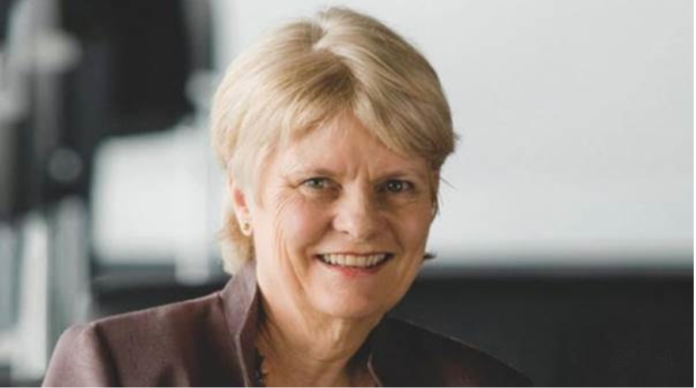I HAVE BEEN an admirer of Susan St John and her work for the best part of 30 years. So much so that in 1992 I put her picture on the cover of my magazine, New Zealand Political Review. In a country where the number of progressive public intellectuals is shrinking alarmingly, Susan stands out as a forthright champion of social justice for New Zealand’s most vulnerable citizens.
It is sobering, therefore, to find myself branded a cynic by this tireless campaigner against child poverty – not to mention being called out for my patronising and dismissive attitude towards Labour-voting women! Had the case Susan presented in rebuttal of my Daily Blog post “Staying Focused: Why Labour Still Won’t Help The Poor” been a strong one, I would have breathed a heavy sigh of contrition and retired hurt.
But, Susan’s case was not strong, it was weak. The old saying, “If wishes were horses, then beggars would ride”, sprang to mind. Or, perhaps more accurately: “If expressions of support for the poor were more than empty rhetoric, then beggars would no longer be found sleeping on our streets.”
Because what Susan read in my posting wasn’t cynicism, it was realism (albeit expressed with a fair measure of sarcasm). That the reality described is grim I would not for one minute dispute. That I would be a great deal happier if this government’s conduct of social policy showed more evidence of empathy and courage is, similarly, indisputable. But wishing something was so, doesn’t make it so. The grim realities of poverty in New Zealand must be faced squarely – and so must this Labour Government’s consistent failure to adopt the policies required to reduce it.
According to Susan: “Two things drive the ‘don’t do anything about the poor’ group attitude. The first is naked self-interest, the second is ignorance.” I agree. Unfortunately, Susan declines to properly interrogate the former, and spends far too much time speculating about the latter.
“Naked self-interest” is a fearsome beast – with a truly terrifying ability to prevent us from hearing any argument calculated to weaken its grip on our priorities. It was the American journalist and social reformer, Upton Sinclair (1878-1968) who expressed this aspect of self-interest best. “It is very difficult to make a man understand something,” wrote Sinclair, “when his salary depends upon him not understanding it.”
Knowing this to be true from bitter personal experience, I could only shake my head sadly as Susan waxed eloquent about Jacinda Ardern re-dedicating herself to the task of making “a more equal society” by providing “the leadership she’s so good at, to get the neoliberal left to re-envision the future.” How did she propose to do this? “In a sentence: appeal to their self-interest and challenge their ignorance.”
And off Susan went, in her best imitation of Don Quixote, tilting at the same windmills against which she has been setting her lance these past 30 years: The counterproductive under-investment in Māori and Pasifika communities upon which New Zealand’s economic future will increasingly depend. The dangerous stigmatisation of the poor, which our increasing reliance on private philanthropy only intensifies. (There’s a reason why people talk about something being “as cold as charity”.) The self-evident benefit to the whole of society of providing jobs, housing, health and education to all citizens. The fundamental moral obligation on the part of all human-beings to prevent children from suffering in circumstances of acute material deprivation.
But, Dear God, Susan! If this worked, it would have worked already. It would have worked 30 years ago when Jim Anderton, Sandra Lee and Jeanette Fitzsimons offered every single one of those policies to the New Zealand electorate and saw the Alliance’s vote drop from 18.21 percent to just 7.74 percent in the space of three consecutive elections. (Only to disappear altogether from the New Zealand Parliament three years later.)
While the people from the “leafy suburbs’” salaries, house-prices, social-status and children’s futures depend upon them not understanding either the economic disadvantages of unequal wealth distribution, or the sheer dehumanising agony of grinding poverty, then they will go on not understanding it. Do you not understand, Susan, even after 30 years? They don’t want to know! Their ignorance is blissful.
It is also disappointing to hear the same wishful thinking that plagued the politics of middle-class suffragettes more than 100 years ago, repeated in the twenty-first century. The highly contentious notion that enfranchising women would, somehow, “tame” society. That women were beings in possession of a higher moral sensibility that mere brute males. That a society in which women enjoyed equal rights with men would ipso facto be a kinder, gentler society.
Do you really suppose, Susan, that all these “kind Labour women” have only to “flex their muscles” and their “deep-felt concern for the unconscionable struggles of families and women doing the undervalued social care in society” will be translated instantly into the sort of “transformational” change that will bring capitalism, that unceasing generator of inequality and social injustice, to heel? There are many adjectives that could be applied to this sort of magical thinking: “patronising” and “dismissive” are two of them. Just one name, however, is sufficient to dispel it altogether: Margaret Thatcher.
With the Iron Lady firmly in mind, just think about the sort of policies which those 400,000 former National Party voters (the majority of them, if we are to believe the pollsters, women) who gave Jacinda’s Labour Party its crushing parliamentary majority had been happy to vote for when John Key was New Zealand’s prime minister. Where was their “deep-felt concern” for the poor and exploited then?
Perhaps, Susan, that’s why you and your fellow philanthropists created the Child Poverty Action Group? Because it is much easier to extract charitable donations from the wealthy when the recipients of their generosity are blameless infants – not improvident parents. Had you called it thePoverty Action Group, it would have been a great deal harder to prise open those wallets from the leafy suburbs. Action against poverty requires action against wealth; action against privilege; action against racism and sexism. In a sentence: action against naked self-interest and ignorance. And that, as you know full well, Susan, is a much harder sell.
Seemingly, there are plenty of opportunities for cynicism in the fight against poverty. More than enough for realists and idealists.






OK, one set to nil to Trotter. Susan, your serve (and I guess your going to have to put some meat on the bone of your normally throw away one liner reasoning of how to get those kids out of poverty)
The rich turds will be concerned only when they are tied up and being home invaded by the oppressed. If its only their neighbours being home invaded, then great, it means they will get ‘ahead’ of their neighbour some more. NZ’s suburbs have become ‘survival of the sociopathest’.
Dragging down rich people won’t uplift the poor. Their fate is largely in their own hands.
And uplifting the rich will further drag down the poor aye Andrew. Companies getting money from our government during Covid and then paying out dividends is unfair. Capital gains on selling housing is also unfair and printing money is also unfair.
Neither will kicking the poor whilst their down. The rich can afford to lose a little, the poor, not so.
Sorry John “they’re” down.
Classic Andrew!
Where do you get this material from?
https://en.wikipedia.org/wiki/William_J._H._Boetcker
Is that you Mr Prebble? The 80’s phoned and want you to come home.
Of course, it’s called revolution.
Rich people drag themselves down all the time. Won’t hurt to nudge some of them towards bankruptcy in a survival of the fittest.
That’s a denial of reality, and our ideal. Two in one.
Once again very politically astute.
I’m really pleased that Trotter is differentiating between poverty, and child poverty. The latter is a starting to look like cynical heart-string manipulation, and more amenable to kind thoughts under leafy trees, than having to contemplate the bigger picture of adults who may have no realistic pathway out of the reality of the exploitive capitalist system, and are therefore dismissed as no-hopers.
Period poverty has been a classic example of this here, and in the UK, whose wagon we so piously and ostentatiously jumped upon.
Nobody wants to return to the days when school girls endured embarrassing public accidents, but the fact remains that in my mother’s time, and during the previous hundreds of years, tampons and sanitary napkins did not exist.
Women made their own cloth protections, and they washed them and re-used them, just we all used to do with babies’ cloth nappies, before the arrival of the environmentally unfriendly disposable plastic products.
Menstruating girls also used moss, and sometimes recyclable sea sponges which didn’t cause the toxic shock syndrome associated with tampons – and these things were homemade or free, and not adding to the profit of
the consumerist society to such an extent that without them, menstruating females are designated poor and deprived.
Women managed well, before the money men told us otherwise and clinked the coins in their pockets – babies were comfortable and healthier wrapped in cloth – with a snug piece of flannel wrapped around the middle – and none of it ever tossed dirty out of car windows either.
yes, women managed well, they stayed at home and refrained from sport, swimming etc. Just as the poor women and girls who have no access to moss, natural sponges and such do so today.
Sabine. The women in your family may have stayed at home and refrained from sport etc. The women in my family certainly did not, and trained as professional women, especially in nursing and teaching.
But even the stay-at – homes, were not watching television, listening to the wireless, or messing around on social media. They were multi-skilled in ways now largely lost in this
country. And in my day, poor girls used wads of toilet paper easily purloined from railway stations, bus depots, McDonald’s, school lavatories, church halls, and cinemas.
Your women sitting at home today’s sans moss and sponges may be a little pathetic.
Stay at home women today are either wealthy or single mothers. The one’s in the latter group I’ve known also garden, cook, craft, study and work part time to improve their lot. Social media’s just a bonus. Women of your day would most definitely have used cell ph too if they had them. Fuck washing bloody moss and sponges and soiled cloth nappies and stealing toilet paper from public venues. Women don’t have time for all that now. They’ve moved on
+ 1 Snow White.
Nothing cynical about ‘child poverty’, though I avoid those international charities, just pragmatic sales. To the fluffy nonners out there.
Yes, it’s a sales technique to everyone who understands the problem.
This article has a wiff (well..more like stink) of.. “fuck it we tried.. pass my latte” to it. Call me old fashioned but i prefer hope to meek acceptance, even if it is unrealistic.
Well, Kim, in the words often attributed to Albert Einstein: “The definition of insanity is doing the same thing over and over again and expecting a different result.”
Just riding out against the same windmills, on the same horse, with the same lance, year after year, without inflicting any discernable damage to the windmills, does not strike me as a hopeful strategy.
What’s more, at no place in the post do I counsel “meek acceptance” – only a realistic assessment of the chances of success.
That could equally describe your ‘art of the possible’ approach Chris.
uJeanette was a university lecturer before she became a politician;Jim owned a manufacturing company. They were both well off middle class citizens, not sure about Sandra’s background but I expect she came from that same vilified section of society. Just as do nearly all our politicians. And our bloggers and commentators.
We are just as concerned with a having a fair society as any other group. But to honestly try to change it you have to do what they did and stand for election; and win. And having won reorganise the economy so that it serves all the functions that everyone desires. And if the perfect formula for achieving that could be found very few indeed would wish anyone had less.
Once society has established a government by democratic consensus , that govt’ shoulders the responsibility for creating the framework that looks after everyone and also usurps from local communities the means to and the ware with all to do what is needed. But it is cumbersome and inefficient trying to create a structure that works perfectly over a huge diverse population and ever more complex needs generating activities and distribution.
All my life I have noticed that a larger and larger proportion of people seem to be employed for excellent remuneration in activities that produce nothing that anyone needs, while the proportion , even the absolute number of people producing what we all need i has shrunk during my life I would guess to about one tenth of what it was when I was borne.
There is little wonder that there is not enough for those with the least claim.
D J S
Sandra Lee had working class beginnings in Wellington, generations of her family living in a two bedroom house, her brother, father and grandfather were all locked out in the ’51 Waterfront dispute.
Could Jim fill in, in many jobs at his manufacturing company?
Susan St John wrote a great piece yesterday demolishing those who have become apologists for the Labour government doing nothing – providing excuses rather than acting as a force for positive change. Thank you Susan.
We out here trying to win one again!
Maybe solving poverty problems is more than finding the perfect most glorious, morality high, able to sit out entire conflicts, political leader and a party.
Maybe we do have to give Jacinda another 4 electoral victory, in order to eliminate poverty.
Let me put it this way.
If I have to apologize for The Labour Party just so I can have ago at Kris Faafoi (the meme) caramel, there’s a when bunch I don’t like, then we m going to fucken apologize for labour okay, cobber?
A thoughtful contribution Chris
Whatoyamean, child poverty, we solved period poverty! Woop, woop.
Strong and fair rebuttal, CT.
Apropos only of my memory of the School Cert English paper I sat, back in the day, with a ‘please explain this proverb’ “Where ignorance is bliss, ’tis folly to be wise”…. Indeed!
Christ.
Instead of further blog responses I demand the two of you respond to each other in rap diss tracks.
Come on….. The idea of it is making me giggle Mc To hot to Trott and DJ Saint would be the rap beef of the century.
Let’s do this
The 2nd to last para appears to contradict itself:
…much easier to extract charitable donations from the wealthy when the recipients of their generosity are blameless infants – not improvident parents.
And then goes on to blame everyone/everything other than the improvident parents:
Action against poverty requires action against wealth; action against privilege; action against racism and sexism.
We are on a path to inevitable revolution.
I’ve lived a privileged life and always thought a lot about the poor and what the right thing to do is. Things changed 30 years ago and I remember having conversations with caring middle class, well off working class friends at the time. I was telling everyone I knew why we couldnt vote for tax cuts vs welfare spending and what the consequences for poor people would be and the unanimous response was “I cant afford not to”. In the intervening years, talking about the poor and our responsibility to them became a no go area and I was appalled during the late 90’s to find out just how many of these ‘nice’ people had rental properties, usually only 1 -3. But one 32yr old woman who was everyone’s kind aunt at work, had 18.
The truth is there is no stopping greed and self interest and I do think that when you look at the rise and fall of civilisations it is usually linked to greed, selfishness and lawlessness. We as a world are in decline, here in NZ as much as anywhere else.
Our values and our systems are failing us. We need career politicians not those driven by short term metrics. We need a reimagining of community. I dont see any way to get there without enough pain or danger for people to choose to pull together over self interest. And that is bad news.
Well said. How do we change this?
Got to raise momentum to want to change first. And cull the self absorbed do nothings, curb capitalism. Enter Delta, system collapse, rebuild, paradigm shift. Cue Rachel pantene advert, It won’t happen overnight, but it will happen…
It’s basic supply and demand.
So I make something in exchange for a goods or service.
Trade has happened like to his ever since humans stood upright.
In other words 1+1=2
There must be away for the material disadvantaged to be able to produce something that they can exchange for a dignified lifestyle.
Maybe they can all bake cakes so that they have something to eat.
Comments are closed.